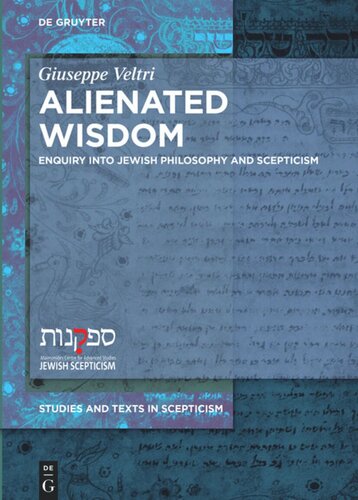

Most ebook files are in PDF format, so you can easily read them using various software such as Foxit Reader or directly on the Google Chrome browser.
Some ebook files are released by publishers in other formats such as .awz, .mobi, .epub, .fb2, etc. You may need to install specific software to read these formats on mobile/PC, such as Calibre.
Please read the tutorial at this link: https://ebookbell.com/faq
We offer FREE conversion to the popular formats you request; however, this may take some time. Therefore, right after payment, please email us, and we will try to provide the service as quickly as possible.
For some exceptional file formats or broken links (if any), please refrain from opening any disputes. Instead, email us first, and we will try to assist within a maximum of 6 hours.
EbookBell Team

4.3
38 reviewsThe present study addresses problems of an epistemological nature which hinge on the question of how to define Jewish thought. It will take its start in an ancient question, that of the relationship between Jewish culture, Greek philosophy, and then Greco-Roman (and Christian) thought in connection with the query into the history and genealogy of wisdom and knowledge.
Our journey into the history of the denomination ‘Jewish philosophy’ will include a leg that will lead us to certain declarations of political, moral, and scientific principles, and then on to the birth of what is called philosophia perennis or, in Christian circles, prisca theologia. Our subject of inquiry will thus be the birth of the concept of Jewish philosophy, Jewish theology and Jewish philosophy of religion.
A special emphasis will fall on the topic treated in the last part of this study: Jewish scepticism, a theme that involves a philosophical attitude founded on dialectical "enquiry", as the etymology of the Greek word skepsis properly means.